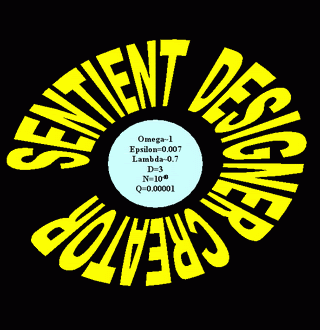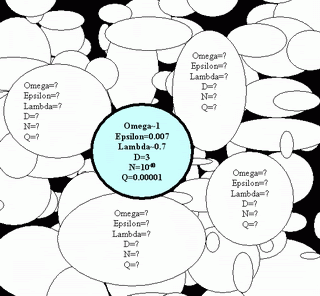QED wrote:A theist will inevitably present God as the ultimate explanation for all phenomena.
True. But that doesn't mean that the theist will present God as the
only explanation for
every phenomenon. If there is a completely naturalistic explanation that is supportable by logical reasoning and empirical evidence, then God does not need to enter the picture. The analogy that olivergringold presented, the gravitational constant, is explainable by natural means. And I certainly for one do not invoke a deity to explain it. If no theist is saying that God is the answer to the gravitational constant, then it is an irrelevant argument.
If we want to know how the apparent fine-tuning of our universe came to be selected, we want to know in the same spirit as we want to know what makes lightning happen for example.
For explaining lightning, there is a naturalistic explanation that is accepted by all and we don't need to invoke Thor.
For the vast majority of cases there is a naturalistic explanation. However, some are better explained by a non-naturalistic explanation.
I have argued many times that it is wholly unreasonable to put God on one side of an explanatory balance and pretend that he's such a light-weight when we would also claim that his efforts were sufficient to fill a finely-tuned universe with so much "cleverly interacting stuff".
That's why my main argument is on comparing the underlying assumptions. I see you've addressed the assumptions I've raised and I'll get to that below.
God has no such quantity of "understandable mass" with the capacity to deliver the goods.
It then seems like you have dismissed the God possibility before the horse is even out of the gate. God can never be an answer because God is not "understandable".
The necessity stems from its capacity to deliver an understandable mechanism. If we are at liberty to allow Occam's Razor to decide between "black-box" systems that only "explain" by virtue of a label on the outside of the box declaring things like "GOD inside -- explains everything! (But please don't ask how GOD works)" we can match that with any other box with similar labelling.
I don't believe I'm just simply throwing out a "black box" answer. I would admit that it does little for debates by simply throwing out "God did it" to any question posed. But, again, my main tactic is addressing the fundamental assumptions and then coming to a conclusion based on analyzing those.
The reason for this tactic is that I think that's the only thing we can argue about. The only empirical evidence we have is the apparent fine-tuning of the constants in the universe. We have no empirical evidence of a creator and none for other universes. So, what else is left to judge with? The only thing I see are the assumptions.
otseng wrote:
But, even more relevant is that more assumptions are required in the "many" explanation. In both explanations, there is the assumption that something exists outside our universe.
This depends on how you are defining "our universe". If you mean the visible portion, then I'd have to remind you that it appears
our universe is expanding at greater than light speed which mandates the existence of "universe" beyond observable range. This is widely held to imply (for all practical purposes) an infinite region with which we have no communication with at all.
By universe, I would include the unobservable universe also. Basically anything that originated from the same Big Bang that caused our observable universe.
I must remind you that when I say "multiverse" I use that term to refer to any additional "state-space" for what we might call "physics".
By using my definition of universe, where would the "multiverse" fall in?
otseng wrote:
In the many, there are also further assumptions:
- other universes can exist
I would say that this is a "given" by the FTL expansion rate of
our "universe".
By using "universe" as the unobservable universe, then it would not be a given.
otseng wrote:
- a bunch of those other universes exist
This can be reduced to disparate regions within the same "universe" (i.e. in the vast unobservable portion of our own universe).
Then what this is implying is that different parts of the same (unobservable) universe can have differing constants. Why would the constants be different based on what we can observe or not if it is in the same universe?
otseng wrote:
- each of them have the same laws of physics and mathematics as ours
- they all have differing constants
I'm not sure what it means to have different laws of mathematics, but I'll certainly go along with that final assumption -- that the values of the constants, and possibly the physics into which we "plug them in", would vary from "place to place" such that some "places" were more hospitable to physicists than others.
In each universe, the following would be true:
F = ma
e = mc^2
1 + 1 = 2
1 x 1 = 1
etc
In order for differing constants to be meaningful, the laws of physics and mathematics would have to be the same.
otseng wrote:
Also, there are several independent arguments/evidence for a creator that corroborate with the design explanation.
OK, well it's tempting to ask what independent arguments/evidence you're referring to. Perhaps you would like to link me to what you think are the best three evidences so we can get some feeling for their weight in this argument.
I listed them
here.
But I think your compulsion to introduce these additional arguments is a tacit acknowledgment of the inherent ambiguity created by our incomplete "view" of the greater context in which we are situated.
My point is that an explanation becomes stronger when there are independent arguments/evidence to corroborate it. The more witnesses one has, the stronger the case.






